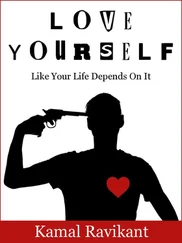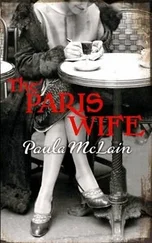The constable looked visibly taken aback, and said, ‘I’m so sorry to hear that, and in the circumstances I’m going to rescind that ticket, sir. And I do hope your daughter makes a full recovery.’ She did, and somehow his faith in human nature, even in God, was restored by the policeman’s evident delight in the opportunity to use the word rescind .
Having come close to it, Lisa knew that there could be no pain in the world like losing a child. Once it was clear that Emma had got through the operation without infection or complication, she was moved from isolation to a ward. One evening, Lisa saw a tiny premature baby boy in a side room. The door was ajar, and she overheard family members saying platitudes to the mother like ‘he’s a little fighter’, ‘he looks stronger today’, ‘you’ll be home before you know it’. But when Lisa looked at the father’s pale, pitiful face, she knew that he knew the truth. At least her daughter was still alive. She thought of Chuck that day, and the hell that he had endured.
In the months following Emma’s recovery, Lisa became desperate for another baby. Edward had always insisted that he only wanted one child. That was his own experience. ‘Have two and it will soon be three,’ he said. ‘And then you lose your man-to-man marking capability.’ And again, ‘If there are three, one child will always feel left out – and then you’d have to buy a people carrier, get an extra bedroom on holidays.’ His other worry was Emma’s health. What would happen if she needed another heart operation, if there were a new baby in the family?
‘I’m not talking about six children, like in my family, darling. Not even about three. Just one more.’ Lisa was not to be deterred, and Edward believed her when she said that she could cope just fine. Her strongest argument was her concern that their home life would be dominated by Emma’s poor health. What could be more distracting, more lovely, than a baby in the house? The milky, yeasty smell of a new baby. Then, as Emma began at school, a toddler making them all laugh.
Edward never really had a choice. When a woman wants a baby, nothing or no one will stand in her way. Emma told her colleague Jan about her plan to become pregnant. She had conceived easily the first time. She had no worries on that score. ‘Tonight’s the night,’ she said. ‘The champagne’s in the fridge, and I’m going to seduce my husband.’ Three months later, she told Jan that she was having a baby, a boy. They both giggled conspiratorially. ‘I always knew you were a determined woman,’ said Jan, admiringly.
Emma was delighted to know that her mother was having a boy baby. Lisa told her, ‘He’s yours. I had him for you.’ She wanted something good to come out of the sadness of Emma’s health problems. She had secretly longed for another daughter, but little Emma much preferred the idea of a brother.
Emma was special. One day when Lisa was heavily pregnant and climbing the stairs, she felt two little hands underneath her belly, lifting up the weight. The support felt fantastic. During the early part of the labour, Emma came into the hospital ward and encouraged Lisa to walk around and work through the pain. Much to Lisa’s amusement, Emma found a large pink plastic ball in the maternity suite and rolled it towards her.
‘Em, how on earth do you think that exercise ball is going to help?’
‘Sit on it, Mummy. Then your back won’t hurt.’
It worked like magic.
Because Emma had been premature, Lisa had been told to have an epidural. There had then followed a messy forceps delivery. This time, she wanted a natural birth. She wanted to know whether physical pain could be as bad as her mental anguish over Emma’s heart condition. Nothing could be worse than almost losing her daughter. Physical pain is physical pain and could be endured. Perhaps she was punishing herself. She wasn’t entirely sure about her motives, and the pain was excruciating. It was Edward who got her through it.
‘You can do it. You can do it. I know you can.’
That was all she needed to hear. Afterwards, she was too exhausted to take the baby in her arms. She told the nurse to give the baby straight to Emma. Job done, she told herself, as she saw Emma’s happy, excited face. Lisa fell asleep.
Emma was only five when he was born, but she carried George around the house as if he were a doll. Lisa’s girlfriends were amazed that she let Emma carry the baby in her arms over the flagstone floors of their farmhouse – having married, recovered from the financial clean-out of their respective divorces, and had a family, they had moved out of the city to a village in Cheshire. After the trauma of Emma’s first few months of life, Lisa had decided that she would only go back to her textiles GCSE class part-time. With the arrival of George, she decided to give up teaching altogether. She might finally have some time for that second book.
‘Aren’t you scared that she’ll drop him? She’s only a child herself.’
‘She won’t drop him. There’s more chance that I would drop him than that Emma would. He’s too precious.’ And she never did.
* * *
Over the years, Chuck always offered support through the difficult times. Once, when Edward and Lisa had returned home after several days and nights in hospital with Emma, who had come down with a serious infection, they had found, waiting on the kitchen table, a Fortnum and Mason hamper of goodies and a huge vase of blue cornflowers. A stew in a brand new Le Creuset casserole dish was warming in the Aga, and the lawn was freshly mown in neater stripes than Edward had ever achieved. Chuck had arranged it all, liaising with one of their neighbours, who had a spare key to their house.
Touched by such gestures, Lisa and Edward asked him to be George’s godfather. Lisa also hoped that it would help him to have a child in his life. Chuck took his godparenting duties seriously. He gave generous and thoughtful Christmas presents, and said that he would lay down a bottle of the best Californian red wine every year so that George would have his very own cellar when he was eighteen.
CHAPTER 6
Lisa kept saying that she had had enough of teaching. Apart from Jan, she didn’t get on with the other women in the staff room. Especially not with Ms Robinson. There was history between them.
Misan Robinson was formidable. Most people at SJA were terrified of her. She was so right-on, with her dreadlocks and her Adidas trainers. The students respected Missy. There was no messing about in her classes. She taught religious studies (even though she was an atheist). Her special interest was in feminist theology. She worshipped Rosemary Radford Ruether. Her dream in life was to teach at Howard University, and, to that end, she had enrolled on an MA programme at the Open University. Missy had a dream.
Lisa could not stand Ms Robinson. She was so pretentious, so achingly cool. What a phoney. Edward, of course, loved Missy. This was one of the rare instances when he and Lisa did not agree.
‘She’s exactly what this school needs. Know your privilege, Lisa.’
‘What’s that supposed to mean?’
‘You know exactly what I mean.’
‘Do you fancy her?’
‘Don’t be absurd. She’s a first-class teacher, and a team player. You don’t make any effort to win her over.’
‘I don’t intend to. She patronizes me about our relationship. She’s a cow. And I’m not going to be nice to her because she’s black. Because that’s racist.’
‘Lisa!’
‘What?’
Edward shook his head as he unlaced his shoes. Sometimes, Lisa was utterly impossible.
‘She likes you, Edward. A bit too much, in my view. I’ve seen her, with her velvet doe-eyes giving you the look.’
Читать дальше












